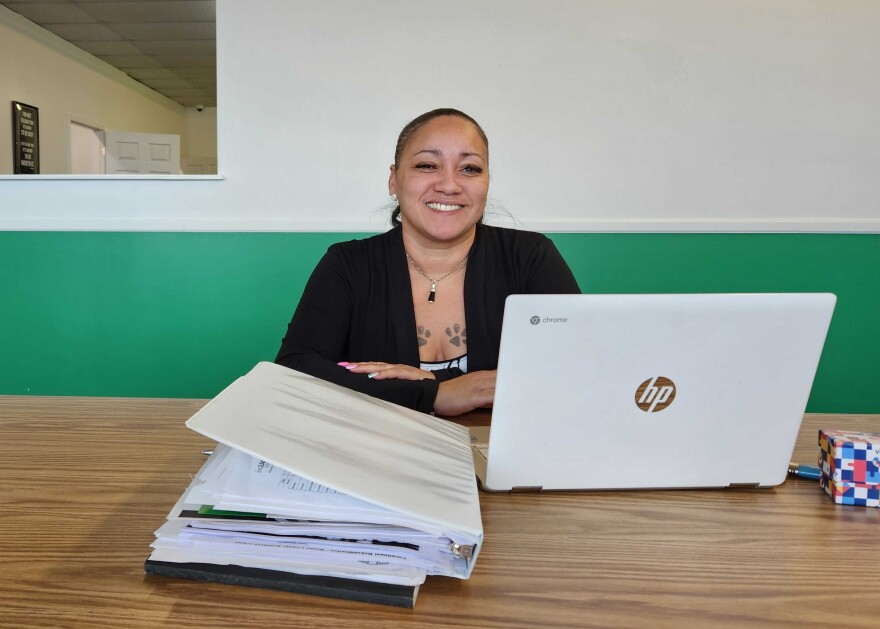On a side street off of Business Loop 70 in Columbia is an unassuming office. Large dark windows make it hard to see inside. But the moment you walk in, you’re greeted by the booming voice of Julian Jackman, the executive director of People Embracing Another Choice Effectively, or P.E.A.C.E.
Jackman was in prison for 17 years. Now, he helps others who have recently come out of prison.
P.E.A.C.E. helps people get identification, housing or whatever else they might need to reenter society after incarceration. But even before that, they work on getting people released as well as who they’re going to live with.
“You have to have what is a home plan,” Jackman said. “You have to have a physical address that you are going to go to live. If you do not have that, the Missouri Department of Corrections will not release you from their custody.”

People who are incarcerated are required by the state of Missouri to have a home plan before leaving prison.
Missouri’s Department of Corrections released a little over 13,000 people in fiscal year 2021, a department spokesperson said — and some individuals don’t have a residence prior to release.
Jared Drummond, a district administrator for Missouri Probation and Parole whose office is in Columbia said that three months before release, incarcerated people should be getting a home plan ready.
“The client identifies a home plan," Drummond said. "So, this is their proposal of where they want to be released to or when they're released on parole. This is where they're going to live upon their release, and they inform their parole officer, their institutional parole officer."
"I've seen quite a few of these guys get out and go work harder than someone who's been out every single day. Giving them a second chance will help them."Jessica Chambers
Once that proposal is submitted, the client’s institutional parole officer investigates the living situation. Then, they decide case-by-case if it will be approved.
The DOC does provide some transitional housing units, Drummond said, and works to connect those leaving the criminal justice system with community partners.
For people who have been in prison for a long time, it can be difficult to find housing.
That's one of the biggest problems Jessica Chambers, a peer support specialist at the Reentry Opportunity Center sees for the formerly incarcerated.
“There's not enough spots anywhere for people," Chambers said. “A lot of times, it's hard to rent places, or just find a residence at all.”
Chambers helps clients who were previously incarcerated enroll in educational and benefits programs, find housing and act as a helping hand during the transition period.
She said that for those who don’t have a family to go back to, the next best option is sober living programs, which provide housing for those in recovery — although there is a shortage of those beds in Columbia.
Chambers wants everyone to be able to pursue a better life — no matter who they are or what they did.

“I've seen quite a few of these guys get out and go work harder than someone who's been out every single day,” said Chambers. "Giving them a second chance will help them.”
Jackman knows what it’s like to get that second chance. But he also knows that prejudice exists in society, from landlords and sometimes from formerly incarcerated people's own families.
“But when we come home, it's not looked at, it's ignored, it doesn't matter,” said Jackman. “We're still that person 20, 30, 15 years ago, and we're still being categorized, that has to stop. That's a discrimination.”
Jackman’s biggest piece of advice for people leaving prison is to use the resources in your life – ask for help and be honest about your current needs.
And he added that in his ideal world, the Missouri Department of Corrections would offer more support and opportunities for individuals reentering society.
He believes change is possible – particularly if more resources were given to grassroots organizations like his own.






